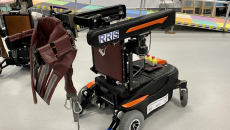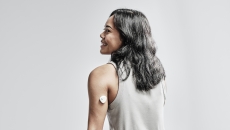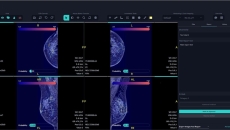Adam Ang
It can also predict falls by using AI and a deep sensing camera that observes a wearer's movement.
It is currently conducting clinical studies and expanding its teams in Australia and the US.
The solution screens for plus disease, which is associated with severe ROP.
Individuals are also less likely to trust AI-suggested interventions than those recommended by humans.
The company will maintain its patent right for the technology.
Docquity will use its fresh funds to further expand into East Asia and the Middle East.
Also, Lunit has received Taiwan's approval for its AI mammography solution.
The AI model still has a modest prediction accuracy and is slated for a wider clinical trial soon.
It provides a range of information and resources to support people with down syndrome.
It will use its fresh funds to complete a multi-site validation study across eight Asia-Pacific markets.







